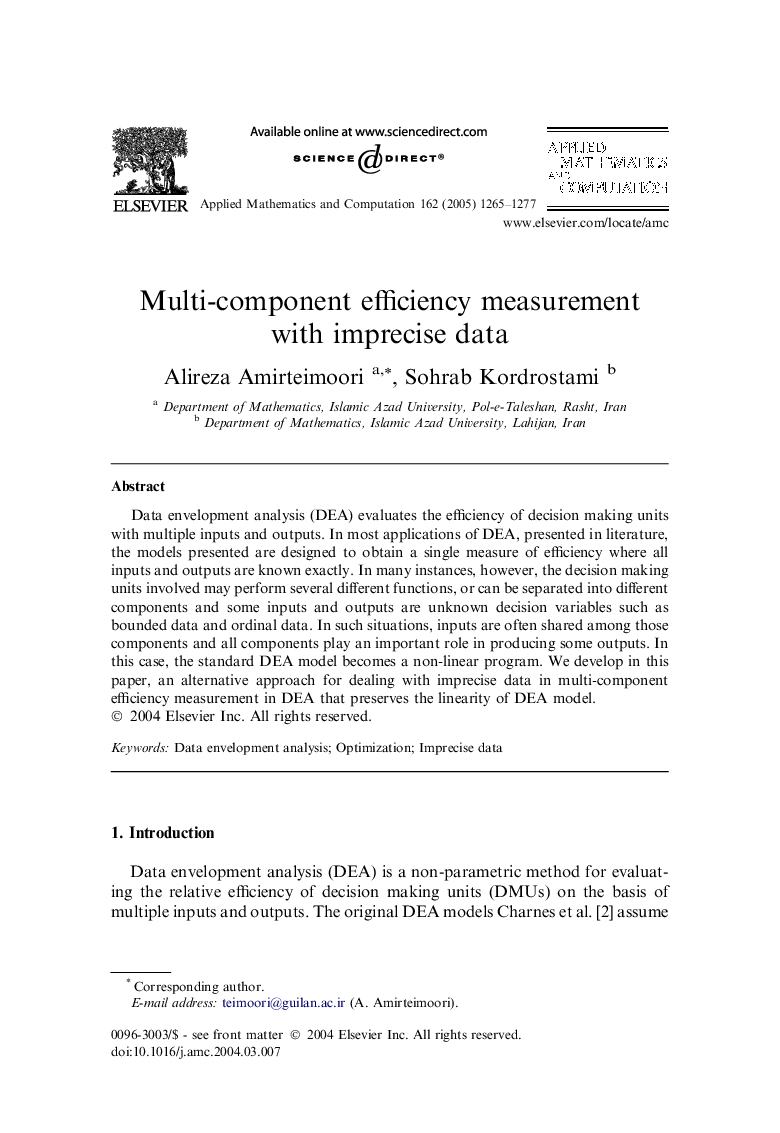| Article ID | Journal | Published Year | Pages | File Type |
|---|---|---|---|---|
| 9506912 | Applied Mathematics and Computation | 2005 | 13 Pages |
Abstract
Data envelopment analysis (DEA) evaluates the efficiency of decision making units with multiple inputs and outputs. In most applications of DEA, presented in literature, the models presented are designed to obtain a single measure of efficiency where all inputs and outputs are known exactly. In many instances, however, the decision making units involved may perform several different functions, or can be separated into different components and some inputs and outputs are unknown decision variables such as bounded data and ordinal data. In such situations, inputs are often shared among those components and all components play an important role in producing some outputs. In this case, the standard DEA model becomes a non-linear program. We develop in this paper, an alternative approach for dealing with imprecise data in multi-component efficiency measurement in DEA that preserves the linearity of DEA model.
Related Topics
Physical Sciences and Engineering
Mathematics
Applied Mathematics
Authors
Alireza Amirteimoori, Sohrab Kordrostami,
